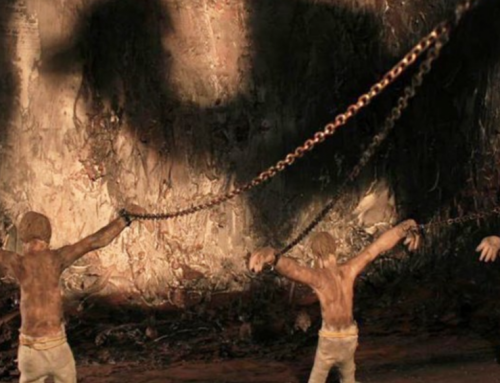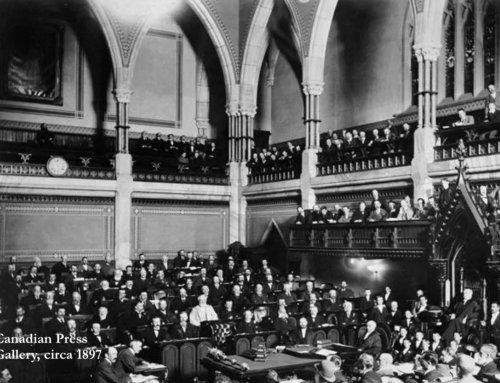Don’t answer that! At least not until you’ve read this book
Five things you might not know
- Research by Dr. Elliott Jaques and Kathryn Cason established two fundamental measures that universally apply to a leader’s capability in judgement and decision-making: i) An individual’s mental processing capability; and ii) the complexity of the information to be processed.[1] It’s set out in their book Human Capability (1994).
- There are “four orders of information complexity” and senior level judgement and decision-making involves a great deal of the top two.[2]
- There are four levels of mental processing capability and any capability below the top two is inadequate for senior level judgement and decision-making. [3]
- These findings were established more than twenty-years ago and are applied by organizations around the world (still too few) in evaluating leadership capability. Boards should apply them to CEOs, and CEOs to all levels of leadership (the book outlines the methodology). And America, in order to better manage its expectations, should apply these metrics to their new President.
- “Complexity of mental processing” (CMP) is far more than IQ and measures what IQ never has.[4]
Tribute
 Before you read the brief insights from the book below, take 2:45 to view a video tribute to the late Dr. Elliott Jaques (1917-2003), which celebrates his 100th birthday (Jan. 18, 2017). It serves as a wonderful introduction to the depth and breadth of the discoveries and contributions his work has made, and continues to make, to human endeavors and leadership.
Before you read the brief insights from the book below, take 2:45 to view a video tribute to the late Dr. Elliott Jaques (1917-2003), which celebrates his 100th birthday (Jan. 18, 2017). It serves as a wonderful introduction to the depth and breadth of the discoveries and contributions his work has made, and continues to make, to human endeavors and leadership.
I had the good fortunate of knowing and working with Elliott in the late 1990s and his genius has left an indelible imprint on leadership and the work of human organizational development through his theories of “Requisite Organization” and “Stratified Systems Theory.”
“Dr. Jaques’ contributions are multi-disciplinary in Psychology, Sociology, Economics, Philosophy and Linguistics as represented in Jaques’ developments in our understanding of the meaning of employment work and in the evaluation and development of individuals engaged in work. His contributions to the social sciences include a method for objectively measuring the complexity of work in roles and an objective understanding of the nature of human potential capability and its maturation throughout life from infancy through old age.”
Human Capability is one of more than a dozen books written by Jaques and an integral part of more than sixty years of his work, all of which you can investigate at the Requisite Organization website.
(4 minute read)
Assessing any leader’s mental capability
Human Capability is a book to be read by anyone who wants a scientifically based, objective perspective for understanding and assessing the capability of a leader, including – especially – Donald Trump, now that he has to participate at the highest level of mental and emotional complexity. Promises, pronouncements and proclamations (not too mention tweets) are one thing, anyone can make them; whereas, consistently performing at the highest level of mental capability is totally different.
Good enough, isn’t.
Many leaders operate within their capability and we get what they are capable of, nothing more, nothing less. And too often it’s accepted as “good enough.” We know that type of leader. We see them, work for them and follow them. One of the problems is that too many of them get to their position of authority without a true measure of their mental processing capability. They don’t get there on merit but on seniority, nepotism, money, power, politics, who-they-know and a myriad of reasons that have nothing to do with their mental capability. And we have to settle for them. Because we have not applied a scientifically-based method to measure their capability. Jaques and Cason do.
Human Capability demonstrates that there are two overriding factors that can measure a person’s mental capability:
- First, the “level of work of a role.” How heavy is the responsibility in the role or position? What is its complexity? Jaques’ research established that the “time-span of discretion [responsibility] in a role gives an objective measurement of its level of work.”[5] The different orders of information complexity are laid out in a pattern of stratification in managerial hierarchies that relate to “time-spans,” and they progress from the least complex to the most complex, from one day to three months, 1 year, 2 years, 5 years, 10 years and 20 years. The lowest is Stratum I, the highest Stratum VII.[6] These strata “correspond to differences in the level of abstraction which have to be employed in order to make it possible for managerial leadership and authority to be exercised.”[7] In other words, the longer the time-span to which the requisite thinking must apply the higher the mental capability required for abstraction and complexity.
- Second is the “complexity of mental processing” (CMP). All of Chapter Two is devoted to the levels of “problem-solving capability” of individuals. The authors state that CMP is generic. “At any given stage in our development, there is an absolute maximum level at which we have the potential capability to work [problem solve]. The maximum level and its rate of maturation is innate; it is constitutionally in-built from conception. It’s maturation is unmodified by education and the amount of knowledge we may acquire, or by the particular experiences we may have had.” They structure mental processing into four levels of capability (1, 2, 3, 4 – 4 being the highest) [8]. And align them with “orders of information complexity” (A, B, C, D – D being the highest). The complexity of information at the C level is called “Abstract-Conceptual” (large corporate and large scale international political problems). The D level is called “Universals” (associated with genius). Excellent examples of mental processing capability at various levels of information complexity, direct from the research study, are found in Appendix A. All levels are illustrated but participants at the C and D are well worth perusing. [9]
Those who seek and accept the responsibilities, the authority, and the fruits of public service should be subject to the deepest possible scrutiny of their potential capability as well as their values and skilled knowledge, by the public who entrust them with the office. – Jaques and Cason.[10]
Leaders are continually measured by the results they produce, and a good measure it is. But too often they’re measured against last quarter, last year, industry comparables, available candidates and other such factors. And yet, if we are to properly measure the value of leaders should not a critical measure be their mental processing capability (not IQ)? Notwithstanding other leadership qualities, Jaques and Cason show how mental processing capability is foundational to leadership performance – and why we should ask:
- What if the results “look good” by standard metrics but are in fact mediocre compared to what the leader is actually capable of?
- What if the results are mediocre because that’s all the leader is mentally capable of?
- How can we accurately measure results if we don’t know the potential mental capability of the leader?
This seminal book provides the research, theory and practices to develop a truly objective measure of any leader, at any level. And despite the level of knowledge and intelligence (IQ), it shows why mental processing capability is a difference-maker. When understood and developed within the framework of Jaques and Casons’ Requisite Organization, it can make a much-needed and fundamental contribution to the development of great leaders.
If a nation expects to be ignorant and free, in a state of civilization, it expects what never was and never will be. —Thomas Jefferson, 1816.
Think about it.
Happy birthday Elliott!
Footnotes:
- Human Capability by Jaques & Cason, p. 23
- Ibid, pp. 32-33
- Ibid, p. 3o
- Ibid, p. x and p. 13
- Ibid, p. 6
- Ibid, p. 14-15
- Ibid p. 16
- Ibid p. 30
- Ibid p. 129
- Ibid p. 11








a very timely piece with thought provoking comments. Thanks David
By virtue of the definition of democracy as I understand it, leadership is contradictory to its concept. Democracy isn’t designed to select a true leader, but one who will deliver what the majority is hoping for, and that is unlikely to be what a true leader would choose to deliver of their own volition. You don’t need a top thinker to do that. Top thinkers are more at home in political situations that are not operating as a democracy. I don’t imagine that any nation operating as a true democracy would have to concern itself with aggression from a truely democratic nation elsewhere so again, a top thinker is not critical to the situation. Non-democratic nations are more likely to be controlled by top thinkers in numerous categories, I tend to think. This might be one reason why democratic nations seem to be on a constant path of trying to convert non-democratic ones. In short, a true leader with extraordinary capabilities could not make use of those capabilities in a democratic scenario. If what I;ve said here so far has any merit, the fact that Trump will “lead” the USA for the next four years will not mean a whole lot once those four years have passed, and the USA will continue to churn along its predictable path long after that. So, in even shorter, my answer to your second question is that the world will continue in its ‘usually chaotic’ way to try to move in the direction of a “global” entity, but never actually achieving it because the top thinkers won’t let that happen for selfish reasons in particular. My answer to your first question, where will that leave Trump, in the short term, he may pave some paths to more personal enrichment, but in the long term, he’ll become irrelavent as those that follow him put their particular agendas in place for their time.
To Manfred’s comments:
I agree that democracy, as we know it in modern times, is not well-suited to attracting or accommodating great leadership. Some say “it’s a fools game” because it is actually not democracy in that the various electoral systems do not elect a majority in most countries (two exceptions are Belgium and Australia where they have mandatory voting). Example: Trump was elected by about 24% of eligible voters. I think Trudeau was elected by about 30%. See my earlier blog for more on the broken political systems: “America got it right … well, a quarter of America got it half right.”
The leaders we get are not there because the majority of people elected them. As you say, “democracy is not designed to elect a true leader.” Therein lies the core of the problem: We need to attract true leaders with a high level mental capability IF we ever expect to build a true democracy. Because as you suggest politicians in power do not want a true democracy. And your point is well taken that “a true leader with extraordinary capabilities could not make use of those capabilities in a democratic scenario.” I think that is a key reason we don’t get the most capable thinkers. But I DO think we need them. We need leaders that have two foundational traits: 1) mental processing capability (as set out by Jaques and Cason) and; 2) great character (integrity, values, wisdom). There are lots of people with the former but much fewer of the latter. And finding the leaders with the combination is beyond the old metaphor of a “needle in the haystack.” and even if we could attract them into public service, I think the system is stacked against what they would and could do.
Regarding Trump. I don’t believe he has the mental, emotional or psychoIogical make up to lead (he can push and bully but he can’t truly lead). But I agree that America will survive him. Unless his psychosis and narcissism trigger him into one or more disastrous mistakes. If that happens, I assume they’ll dump him in a hurry.
This could possibly work much better if the top thinkers were at the second level, just below the leadership layer. The leadership layer could be made up of 3 or 4 chairs, each with the same weight (authority) but every decision would be a consensus or by majority, and only taken after the thinkers inserted their expertise into the process. Then that decision would go on to the debate and voting level (the body of elected representatives en masse). One could say that’s what we have now but not really because now it’s still up to one mind, one personality, one opinion (ultimately) to get the ball rolling in their single choice of direction. It would be up to the leadership level to co-ordinate the efforts of all the others with the real experise and hopefully without their own agenda other than to give the best possible advice based on their ability and capacity to understand the underlying facts.
Trump fits perfectly into this scenario where he would only assemble the expertise and present their collective thinking for consideration by the elected reps, and still himself represent the hope that his supporters have in his ability to do what he promised them in the first place.
My comment above may seem to be drifting away from the point of your post but I think what I’m saying is that I don’t completely agree that the ‘leadersip’ needs to be the ultimate thinking level to do the job we expect from it. One reason is that the leadership could never explain to the masses, the ‘thinking’ that brought about the course of action that the leadership initiated, which is something that good leadership can do convincingly.
Manfred – I’m not sure i fully understand your point “that I don’t completely agree that the leadership needs to be the ultimate thinking level to do the job we expect.” I think the lack of comprehensive thinking is, in fact, one of the longstanding problems we have in business and political leadership. There is too much focus on the short-term (i.e., quarterly reports, annual bonuses, the next election) and I think two reasons for it are: 1) The metrics and rewards are geared to short-term results; and 2) thinking and decision-making for the long-term is very difficult. As Thomas Edison said: “There is nothing man [and woman] won’t do to avoid the difficult task of thinking.” Perhaps we’ve become so used to mediocrity in our leaders that we accept it as the norm. Leaders with a high level of mental processing capability (as defined by Jaques and Cason) have a great capacity and talent for communicating complex things in understandable terms, for “the masses.” I believe there are plenty of potential leaders who have the mental capability but they are encumbered by the “systems, both business and political, and they do not have the time or courage to “think slow” (as defined by Daniel Kahneman in his book “Thinking, Fast and Slow”). And it is indeed, the deep, comprehensive, complex, slow thinking that is so needed in today’s world of speed and acceleration (see two earlier blogs, “Is leadership in full retreat” and “Picking a winner in the first Presidential debate will be easy – try this”).
Your concept of a group of leaders with the highest-level of mental capability is a good one (like Plato’s “philosopher-kings”), but, as you say, it would be difficult to implement because, in the end, only one person, the leader, has the authority to make the final decision. Again, Elliott Jaques addresses this in his theory and book “Requisite Organization,” with a system that places leadership responsibility throughout the organization with what he calls “Manager-once-Removed (MoR). A book well worth reading.
I’ll just try to reduce my point to one thought – I think that the ‘leading’ and ‘thinking’ roles are not necessarily required to be one and the same. I think the “leading” role is the enabler, the execution point of whatever the “thinking” role has determined to be the optimum course of action. I hold this point of view because of my personal experience wherein I can do a great deal of thinking on something, an in-depth exercise that tells me what needs to happen and why BUT I am sometimes unable to figure out HOW to enact my conclusion because I don’t possess the necessary skills, which in some cases, is the leadership skill that’s required. I feel that I am actually two people addressing the issue, each with a different skill-set. If I were just one person, I would likely end up limiting my “thinking” role to stay within my “capability level” snd that’s where the optimization takes a hit. So, that’s what I’m trying to express above and it may just be my perspective and one that doesn’t resonate with anyone else or what you’ve put forward in your post. That’s perfectly alright with me and I’m not saying your points are off; I’m just offering mine as an alternative. Thanks for a good discussion.
Manfred – well said! I get it. And you’re right, it is problematic. And I think speaks to the need that most of us need collaboration – “two heads are better than one” – in moving seamlessly between thinking and implementation, or at least, planning the implementation. It’s a bit of the right brain-left brain conundrum wherein most of us do not have the capability to move between right-left at the same level. Big thinkers cannot execute and great execution people can’t think deep enough. Some people are fortunate and have what is sometimes referred to as hyphenated brains, moving back and forth from the “creative” right side to the “logic” left side.